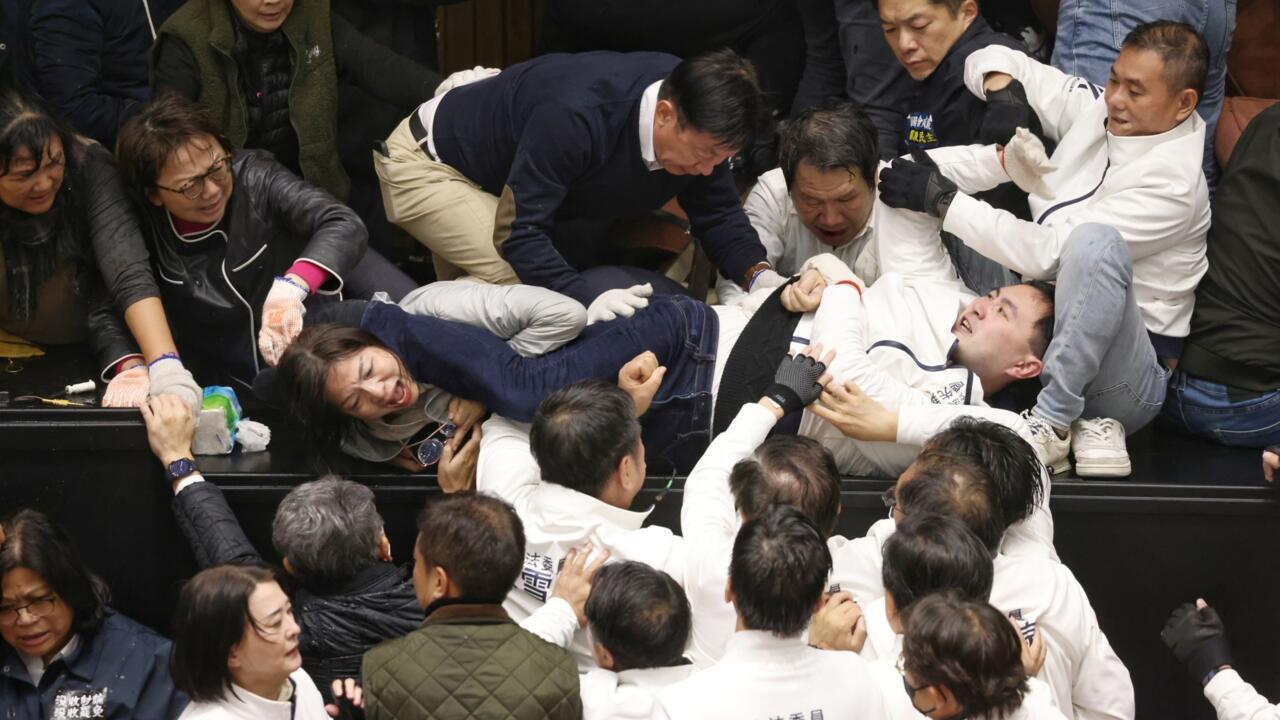Scores of lawmakers from Lai’s Democratic Progressive Party had occupied the podium of the parliament’s main chamber since Thursday night and barricaded themselves inside – piling up chairs to block entrances. The DPP parliamentarians were attempting to stop three legal amendments proposed by the opposition bloc, which would make it more difficult for voters to oust elected officials who they see as unfit.
“Parliamentary dictatorship,” some DPP lawmakers shouted to criticise the opposition Kuomintang (KMT) party and its ally Taiwan People’s Party (TPP) for trying to pass the bills with their majority.
“If the KMT forcefully passes the amendments… Taiwan’s democratic self-checking and self-repairing mechanism will be gone, and it will also cause significant and irreversible damage to Taiwan’s civil society and democratic system,” the ruling party said in a statement. “At a time when Taiwan’s democracy is being violated and damaged, we must stand up and take action,” it added.
Among the disputed bills was a planned revision to the Public Officials Election and Recall Act pressed ahead by the KMT and TPP to raise the threshold for removing elected officials. The Beijing-friendly KMT said it would prevent the power of recalls from “being abused” but some DPP lawmakers said they fear the move would revoke voters’ rights to remove unfit officials. Han Kuo-yu, the current parliament speaker from the KMT, was ousted in 2020 as mayor of southern Kaohsiung city following a failed presidential bid.
Outside the parliament on Friday, thousands of people gathered to protest the bills, shouting “return the evil amendments”, and “Defend Taiwan”. “I am here to protest the opposition parties for trying to confiscate the people’s rights to recall,” graduate student David Chen told AFP.



To clarify the “pro-China” stigma (Note that BeiJing-friendly is gentler)
Why Taiwan’s Main Opposition Party Can’t Shake Its Pro-China Stance
By Chieh Yen (January 18, 2023)
Chieh Yen is a research associate at Trust Taiwan, a policy-based NGO in Taiwan. He holds a master’s degree in International Politics from SOAS, University of London.
https://thediplomat.com/2023/01/why-taiwans-main-opposition-party-cant-shake-its-pro-china-stance/